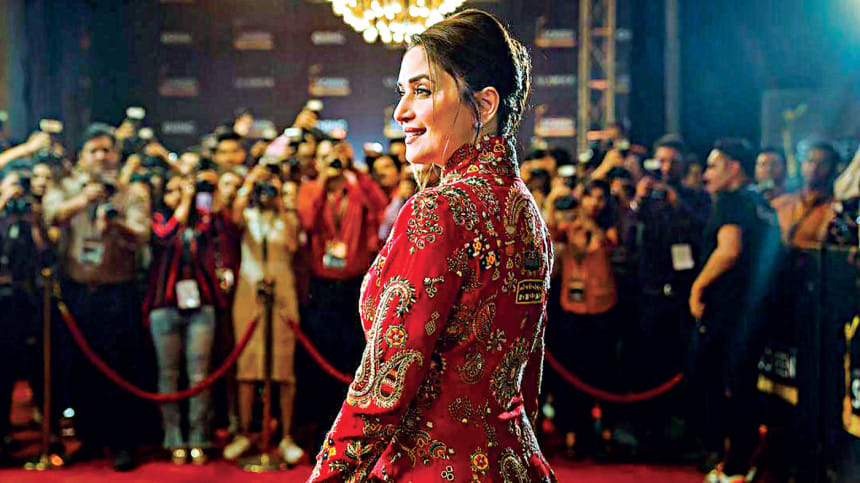The Fame Game: Madhuri Dixit deserved a better OTT debut

My intention was to give her a platform that would do justice to her talent as an actress, and introduce her to global audiences to be dazzled by her star power.
In recent years, not only did OTT platforms provide us with some fresh new talents, but also initiated comebacks of several popular Indian actresses of the 90s.
From Karisma Kapoor in "Mentalhood'' to Sushmita Sen in "Aarya" and Raveena Tondon in "Aranyak", Bollywood queens of the 90s served us with unconventional roles that grabbed our attention. So, by no surprise, much anticipation surrounded Madhuri Dixit's debut web series, "The Fame Game", released on Netflix on February 25.
Sri Rao, creator-writer of the eight-episode series, in an Instagram post ahead of the show's release, stated that he created it for Dixit. "My intention was to give her a platform that would do justice to her talent as an actress, and introduce her to global audiences to be dazzled by her star power," he wrote.
However, with each episode, we realise that the creator is too heavily reliant on that star power, while everything else in the filmmaking crumbles.
The show has an intriguing hook: Anamika Anand (Dixit), a Bollywood superstar, goes missing. The next day, her family is confused, the cops are called, and a media frenzy follows. Intercutting the present day with the six months leading up to the incident, the story reveals the truth of Anamika's seemingly perfect life, delving into the complexity of her relationships with her teenage children, ambitious and pushy mother (Suhasini Mulay), emasculated husband Nikhil (Sanjay Kapoor), and co-star Manisha Khanna (Manav Kaul).

As the police investigation furthers at a snail's pace, the story unfolds lies, deceit, secrets, and tragic family bonds that have left the characters helpless in the present.
It is quite evident – right from the start – that "The Fame Game" is undecided about its tone.
It starts off as a thriller – with an amped up background score, the disappearance of Anamika, the police investigation – but, in the subsequent episodes, the key investigator vanishes for long stretches, and we get subplots instead that point towards a domestic drama. The confusion among individual stories and unanswered questions fails to make the larger picture gripping enough.
Moreover, even though the show touches upon issues from mental health, to body shaming, nepotism, and the complexity of being a star kid to sexual orientation, it does so as vapid self-congratulatory exercises, rather than deep, nuanced portrayals.
As Anamika, Dixit does it all— she sings, dances, lights up the screen, gets wounded but recalibrates and comes out stronger, especially to protect her kids. The exploration of Anamika's relationship with her children, who are experiencing their growing pains as star kids harbouring their own desires and ambitions, adds a sensitive touch.
Yet, from Dixit, the role demands nearly zero effort. There are flashbacks and flash-forwards that let her explore her acting range, but it is nothing we have not seen before.
As the police gauges suspects and digs into Anamika's close ones, the suspense wears off soon too.
By the end, we are left feeling that even Dixit's much-loved dance and eternal smile are not enough to salvage "The Fame Game".

 For all latest news, follow The Daily Star's Google News channel.
For all latest news, follow The Daily Star's Google News channel. 



Comments